May 2, 2024 | 04:44 GMT +7
May 2, 2024 | 04:44 GMT +7
Hotline: 0913.378.918
May 2, 2024 | 04:44 GMT +7
Hotline: 0913.378.918
During a business trip in the highland district of Bac Ai, Ninh Thuan, we happened to meet Mr. Nguyen Thai Duong, the Chairman of the Board of Directors of Dong Thuan Agricultural Service Cooperative (Ta Lot hamlet, Phuoc Hoa commune, Bac Ai district, Ninh Thu). He owns thousands of hectares of organic cashews with quality considered the best in Vietnam.
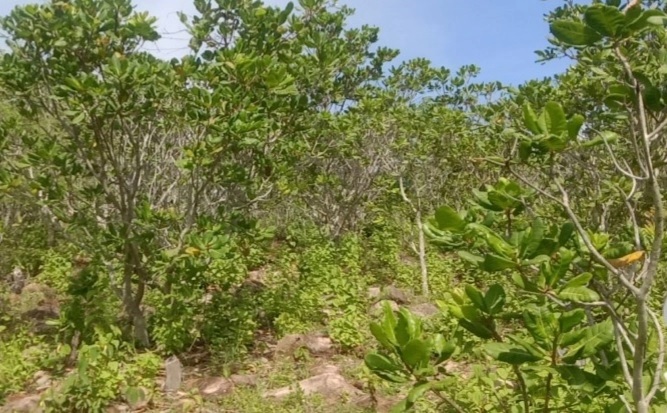
Cashew trees in Ninh Thuan are planted in order to green the bare land and create livelihoods for the Raglay people. Photo: Mai Phuong.
As we noticed that owning thousands of hectares of organic cashews certified by the Control Union of the Netherlands in the mountains and highlands is not a simple matter, Mr. Duong said, "We own thousands of hectares of organic cashews because... good 'cashew' needs no bush!"
He explained: Ninh Thuan is the hottest dry region in the country. The annual dry season lasts for more than 9 months. In fact, for many years, there has been a fierce drought situation, so fierce that many forest trees like acacia or eucalyptus could not survive. Therefore, in order to green the bare land and bare hills, cashew is the only answer.
According to Mr. Duong, cashew trees can adapt to drought conditions, so at the end of the last century, the agricultural sector of Ninh Thuan province planted cashews to green the bare land and bare hills according to Program 661 (The 5 million hectares of forest plantation program) to help people improve their family's economic situation.
However, due to the lack of proper attention to technical norms, the cashew trees were planted in thick density, leading to low productivity as well as damage from pests and diseases. As the potential of Ninh Thuan's cashew tree is evident, Mr. Duong and his colleagues established Dong Thuan Agricultural Service Cooperative to purely focus on cashew business.
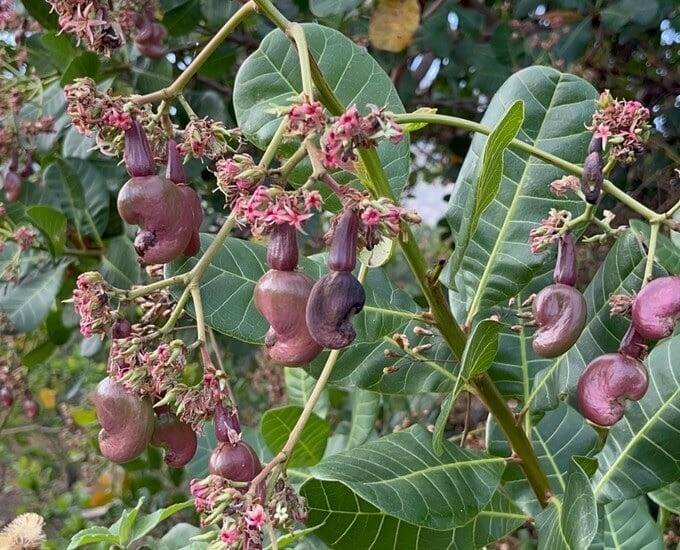
As the Raglay people paid little attention to caring for cashew, the cashew trees could take the advantage of the organic-certified production procedure. Photo: Mai Phuong.
There is another reason why Mr. Nguyen Thai Duong is attached to the cashew tree. Since he was a child, Mr. Duong had been around the cashew tree in the place where he grew up. When Mr. Duong became an adult, to escape poverty, he chose to study business administration and later returned to start a business in Dong Nai. After many years of traveling in foreign countries, but having found no life-changing opportunity, in 2009 he decided to return home to continue his business path.
During his time living in his homeland, Mr. Duong came into contact with cashew trees every day. The ripe cashew fruit possessed an aroma so pleasant that it saddened him to know that there were still many natural cashew areas left unpreserved and cared for. Meanwhile, cashew trees would serve as a good solution to keep the upstream water source from being polluted and contaminated by feces or chemical fertilizer, and at the same time generate more income for people.
Having such thoughts wandering his mind, in 2017 Mr. Duong gave up his business, ready to devote his life to the cashew tree. When he started planning cashew trees, he approached the organic way. He also took a great time surveying, testing samples, planning raw material areas, training farmers and completing procedures in order to establish a cooperative. After establishing the cooperative in 2019, he invited the Control Union of the Netherlands to evaluate and certify organic cashew areas.
“It is easier said than done, as you start implementing the work, it is extremely difficult. Most of the cashew farmers are Raglay people who are familiar with natural farming, so when they have to switch to organic cashew production, they must follow a strict and complete process according to the regulations," said Mr. Duong.
To start building an organic-certified raw material area, Mr. Duong and his members had to make efforts to propagate and train people about the meaning, role and process of organic cashew production. Households are only allowed to use inputs such as organic fertilizers and pesticides approved by competent authorities. As for cashew varieties, native varieties are used only, not genetically modified ones.
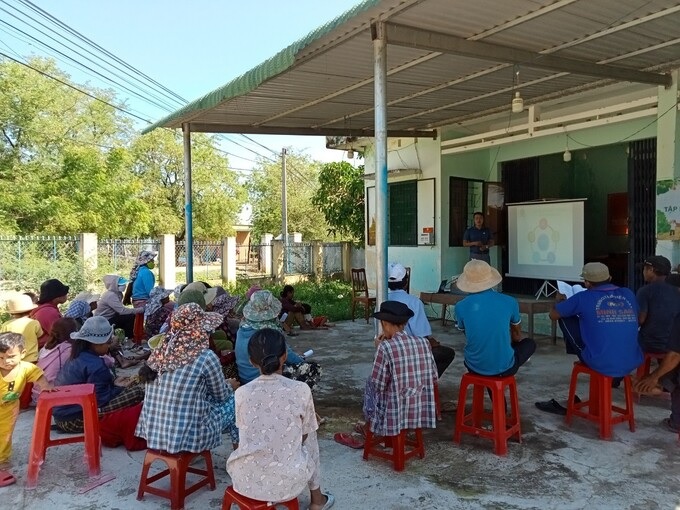
Dong Thuan Agricultural Service Cooperative trains farmers to cultivate cashew according to organic standards. Photo: Mai Phuong.
At the same time, Mr. Duong and his team trained and guided people in pruning techniques and canopy creation to widen the orchard's space. In addition, each participating household must have a diary to record the management of organic farming such as inputs, outputs, impact and treatment measures during the cultivating process.
In order not to use pesticides and prevent harmful organisms, the cooperative regularly inspects the orchards, Farmers should catch pests by hand if seen on the tree, clean the orchard area regularly, use insect traps or biological pesticides. Farmers are absolutely restricted from using herbicides. If there is little grass, they must manually prune it. if there is too much grass, they should periodically cut it and take advantage of it to make compost and cover the trees' base to keep moisture, creating an additional source of organic fertilizer on the spot.
“In order to be certified organic, it is imperative that people follow these regulations. It was difficult at first because people found it complicated. However, with perseverance, communication, and guidance in the style of "Small rain lays great dust", gradually they followed organic standards and by 2021, the cooperative was granted regional certification by Control Union. The cooperative's cashews have finally met organic standards," said Mr. Duong.
After more than 4 years of establishment, up to now, Dong Thuan Agricultural Service Cooperative has grown 1,600 ha of organic cashews, having over 600 participating members. Every year, the cooperative buys 1,500 - 2,000 tons of raw materials for processing.
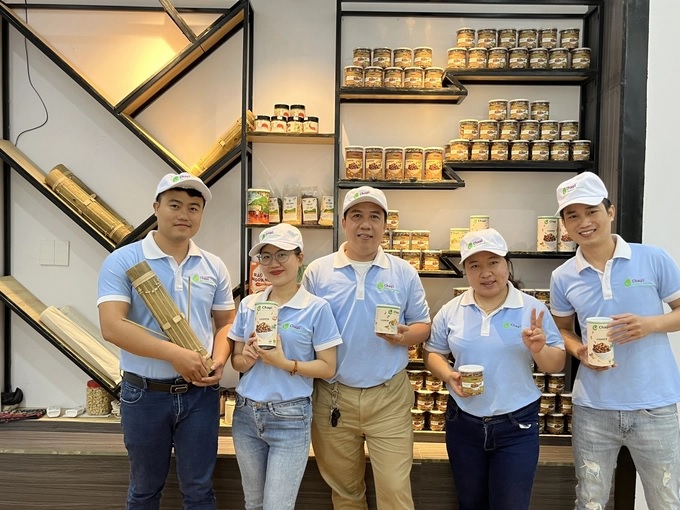
Mr. Nguyen Thai Duong (middle) and the members are building the Chapi organic cashew brand. Photo: Mai Phuong.
“Since we practice organic farming and use local varieties, our cashew yield is only 1-1.5 tons/ha. However, thanks to being organic-certified, the selling price is much higher than the market's price. Our salted roasted cashews are sold for VND 600 thousand/kg, white cashew nuts for VND 250-300 thousand/kg”, Mr. Nguyen Thai Duong said. He also shared that Dong Thuan Agricultural Service Cooperative is now building "Chapi" the organic cashew brand. The name "Chapi" is taken after a musical instrument of the Raglay people, which is considered a part of the people's soul in daily lives..
Mr. Duong's cooperative has registered "Chapi Organic Cashew" for exclusive protection nationwide. In order for the organic cashew brand to go further, the cooperative has sent samples to the US and European markets, which received very good feedback.
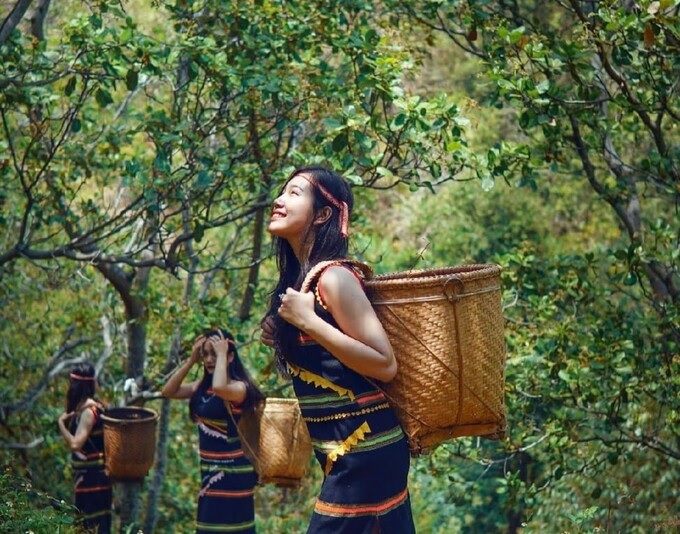
In the harvest season, the local people bring bamboo baskets to the fields to collect cashews by hand. Photo: Mai Phuong.
Dong Thuan Agricultural Service Cooperative has invested nearly VND 20 billion to build an organic cashew nut processing factory with a capacity of 5,000 tons/year. The cooperative expands the raw material area 200 - 500 ha bigger every year, aiming to have 3,000 ha of certified organic cashew by 2025. Mr. Duong and his team strive to supply the European and American markets with 2,000 - 5,000 tons of dry materials each year; 500 - 1,500 tons of organic cashew kernels and organic salted roasted cashews every year from 15 to 50 tons.
Translated by Bao Ngoc
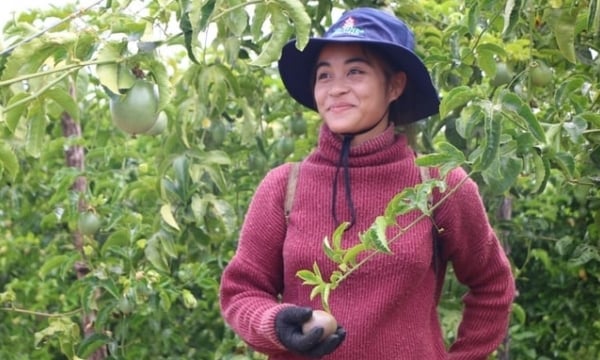
(VAN) With advantages in production area and market demand, passion fruit is emerging as a key crop in the Central Highlands, providing sustainable economic benefits for local residents.

(VAN) Large-scale irrigation projects in the Mekong Delta have safeguarded a beneficiary area spanning more than 1 million hectares, significantly mitigating damage caused by drought and saltwater intrusion.

(VAN) Residents along the south bank of the Hau River are anticipating the Rach Mop lock by the end of 2024, along with projects to fortify the irrigation system to prevent saltwater intrusion.
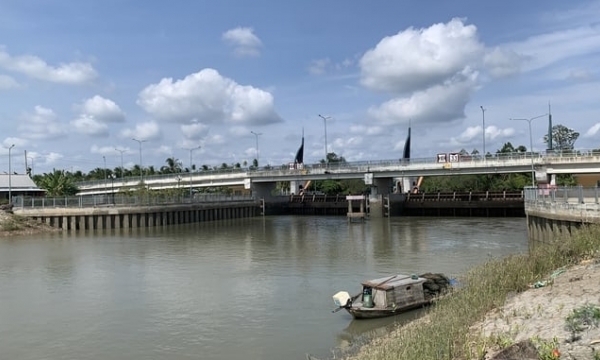
(VAN) The Bong Bot - Tan Dinh sluice delivers fresh water to meet the production demands of thousands residing in Tra Vinh province's coastal areas.
/2024/04/26/0500-3-135847_403.jpg)
(VAN) According to Dr. Dao The Anh, if indigenous varieties that are highly nutritious and adapt to climate change can be developed, the community will greatly benefit.
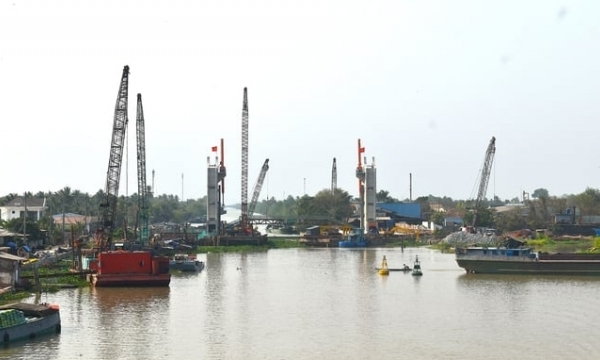
(VAN) The Nguyen Tan Thanh sluice is crucial in preventing salinity and storing freshwater to meet the daily needs of over 1.1 million residents in Tien Giang and Long An provinces.
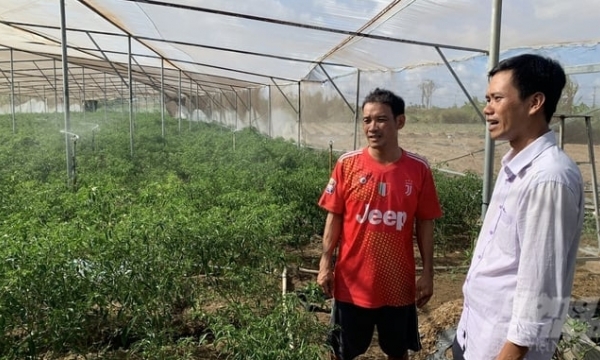
(VAN) The project, sponsored by the European Union, is implemented in Dong Thap, Kien Giang, and Tra Vinh provinces, with a total funding of 4.2 million Euros.